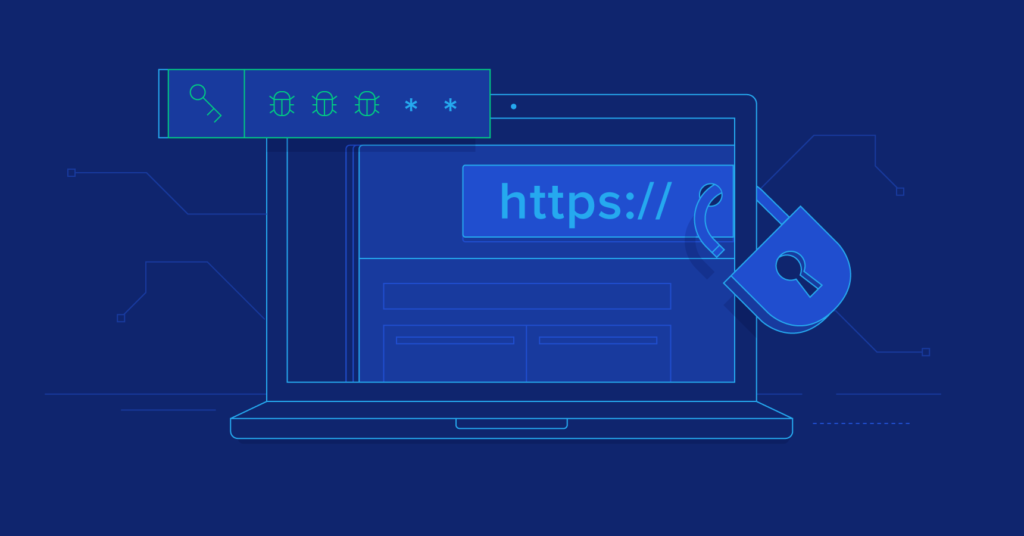Ensuring that your browser is configured safely and securely is the most essential step to take because your privacy, security, dignity, and perhaps well-being may depend on it. Just as we take safety precautions offline at our offices and homes to ensure our safety, so too we must do online.
The internet is a world of digital possibilities, open doors, and challenges. While the internet presents us with unparalleled opportunities for work, business, and personal advancement, so too it comes with dangerous challenges and pitfalls. Failing to secure our browsers can cause us the loss of very sensitive personal, business, and financial information that could fall into wrong hands which could be used against us. Hence, securing our web browser which gives us access to the internet is very important. Below are measures that we can take to protect our browsers and save us the troubles of an unsecured browser:
Control Access: One of the most important steps to take towards securing our browser is controlling who can access it and what they can and cannot do after accessing it. This requires having a strong password that cannot be easily guessed by even skilled hackers. This means that our biodata such as name, age, sex, date of birth, and phone numbers should not be used as passwords. Our passwords should be made of alpha-numeric keys with symbols to make it difficult for third parties to guess. Also, passwords should not be written down where they can be accessed by others. Instead of cramming multiple passwords that may be difficult to remember, we can use password managers that control all passwords making it easy to have the security of our passwords.
Use the latest and Most Secure Version of Web Browsers: Manufacturers of web browsers are constantly researching ways to make them more secure and less vulnerable. Known browser vulnerabilities are regularly fixed with updated versions. Ensuring that our browsers are up to date and have the automatic update feature turned on will save us the trouble of having an outdated browser that can easily be exploited to steal sensitive information and compromise our privacy. Setting a browser to automatically update itself ensures that once a new version is released, our web browser is automatically updated.
Pay Attention to Security Features to Protect Computer Systems and Other Devices and Ensure Security of Our Data: Before going online and accessing websites, we must go through our browser settings and reset the features in a customized way that soothes our security and privacy needs. This requires, among other things, that we activate phishing and malware protection which alerts us if a site we are trying to access contains malware or phishing. Turning off the instant search, disallowing sites from running Java script which is prone to vulnerabilities.
Controlling cookies is also another important step towards getting our security settings right. Cookies should only be enabled when it is necessary for the optimal functioning of a website. Controlling the cookies websites can collect will save users the trouble of losing sensitive data to third parties. We must control the cookies we accept because websites and internet companies use cookies to collect massive sensitive information about us and these sensitive details could be stored and shared in ways we do not have control over. It could even be sold to third parties without us having a say about who accesses these data and how it is used.
Install Security Apps and Antivirus: Rising number of hackers has given rise to the necessity of installing privacy apps and anti-virus. Having an up-to-date and capable anti-virus protects your systems and browsers from being infected and becoming a target of hacks. When it comes to privacy, a bulletproof Privacy Network (BPN) such as Hoody will help you protect your privacy and security. When using your browser with Hoody, each one of your tab and website gets a new IP, a new location, and a unique set of Fingerprints, making tracking impossible. Hoody Phantom Browsing™ future-proof technology beats the most advanced and invasive tracking techniques.
Activate Encryption and Run Anti-exploit Programs: Encrypting information entered in a browser and using only websites with encryption protection help harden our browser. Also, running anti-exploit programs help to harden our browsers against many of the common types of vulnerabilities susceptible to attacks. They perform better than relying on anti-virus that just black lists specific software alone. Encrypting our data and sensitive information ensures that should third parties illegally copy or download them, the information contained cannot be accessed, making it difficult for our privacy to be breached. Encryption gives us an extra layer of security against hackers and cybercriminals.
To conclude, just as web browsers are gateways to the internet world of possibilities, it also opens the door to incalculable challenges and threats. While we cannot completely end these vulnerabilities and threats, there is so much we can do to limit our exposure to them and save ourselves the troubles of having our data and privacy compromised. Taking cognizance of the above-mentioned factors will help us to better protect our privacy.

